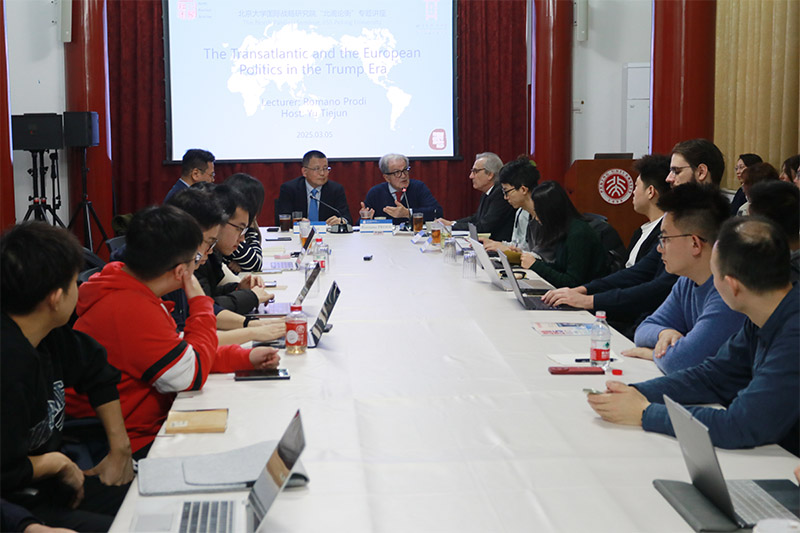
On the afternoon of March 5, 2025, the Institute of International and Strategic Studies (IISS), Peking University (PKU) hosted lecture series under the 83th "North Pavilion Seminar". Romano Prodi, former Prime Minister of Italy and former President of the European Commission, shared his views on the topic “The Transatlantic and the European Politics in the Trump Era”, drawing on his extensive political experience. The lecture was moderated by Prof. Yu Tiejun, President of IISS, PKU.
The lecture began with Mr. Prodi reviewing the history of U.S.-Europe relations, including the U.S. military policy and NATO’s evolution since its establishment in 1949. He then analyzed the rapid changes in global affairs since President Trump took office, pointing out the profound ideological and political challenges currently confronting both the West and the European Union (EU). As a seasoned economist, Mr. Prodi examined the impact of the U.S. tariff policies during Trump’s first term and argued that, even under the Biden administration, the tariff policies enacted during Trump’s presidency remained intact. He also expressed skepticism about the sustainability of the current U.S. tariff policies, pointing out they could potentially trigger a global economic crisis.
In his lecture, Mr. Prodi discussed the dilemma faced by the EU in recent years while examining the opportunities and challenges facing European democracy institution. On European affairs, he emphasized that the EU needs to adopt more consistent policies, secure more external partnerships, and strengthen policy coordination among major member states like France, Germany, and Italy. Regarding China-Europe relations, Prodi suggested that both sides should take steps to properly address their differences and further strengthen cooperation.
During the Q&A session, Prodi engaged in lively discussions with the faculty and students on topics such as the potential impact of the U.S. tariff policies on inflation, disagreements between Europe and the U.S. over the Russia-Ukraine conflict, the future of NATO, European left-wing parties and the transformation of the EU, and the influence of super-wealthy individuals in politics. The interactive session generated vibrant exchanges among more than fifty participants.(Contributed by Qin Jiaru)
Editor: Li Fangqi Photographer: Zheng Huaizhou

